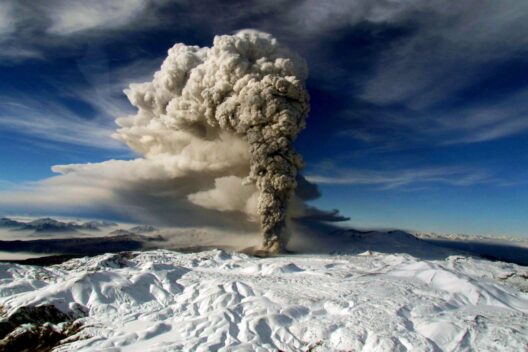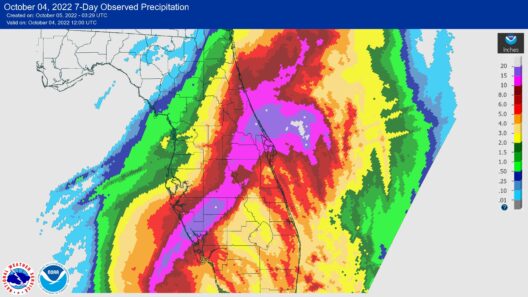The discourse surrounding climate change and global warming has become increasingly polarized, particularly in the realm of media. Among the most scrutinized news outlets in the United States is Fox News. Its coverage of climate science raises essential questions about the consensus surrounding global warming, as well as the implications of media influence on public perception and policy. In this analysis, we shall explore the spectrum of content produced by Fox News, juxtaposing it with broader media narratives and delving into the nuanced stances regarding climate change.
To begin with, it is crucial to recognize the prevailing narrative surrounding climate change within mainstream media. Most outlets adhere to the scientific consensus that climate change is a significant, human-induced phenomenon. This general agreement stems from decades of rigorous research and a mountain of empirical data indicating rising global temperatures, melting ice caps, and increasing severity of weather events. By contrast, Fox News has a peculiar relationship with this narrative, oscillating between outright skepticism and occasional acceptance, thereby fragmenting its stance on global warming.
Fox News typically employs a unique editorial approach characterized by a blend of commentary, opinion pieces, and news coverage, often resulting in a perceptible divergence from conventional reporting. Opinion segments, hosted by prominent figures within the organization, tend to project skepticism towards the concept of anthropogenic climate change, emphasizing alternative interpretations of the data. These opinions resonate strongly with segments of the audience who view climate policies as infringing on personal freedoms or as economically detrimental.
For instance, program hosts may question the motives behind climate science funding, arguing that researchers stand to benefit from sensationalized narratives surrounding climate urgency. Such perspectives foster a discourse that reflects a broader societal ambivalence toward government intervention and regulatory measures. By reframing climate issues through a lens of economic concern and individual liberty, Fox News shapes a narrative that often diverges substantially from scientific community consensus.
Another predominant genre of content evident in Fox News broadcasts is that of sensationalization and hyperbole, particularly when discussing environmental disasters or weather-related events. This approach often simplifies complex scientific phenomena into vivid, attention-grabbing sound bites. For example, during extreme weather events, coverage may emphasize the immediate aftermath while downplaying systemic climate factors that exacerbate such events over time. This framing has the potential to skew public perception, creating an illusion of unpredictability and randomness rather than a discernible link to climate trends.
Moreover, Fox News has been known to feature climate science deniers or individuals expressing contrarian views as expert voices, thereby granting legitimacy to fringe perspectives. Such representation can lead audiences to perceive a level of uncertainty within the scientific community that does not exist. It perpetuates the narrative that there is a significant division among scientists regarding the existence of climate change, despite overwhelming consensus to the contrary. This selective amplification of dissenting voices effectively dilutes the credibility of established scientific findings.
Complementing this approach is the outlet’s frequent reliance on guest segments, where guests, including politicians, business leaders, and activists, are invited to discuss climate-related topics. These appearances often echo the skepticism embedded in the network’s primary narrative. Individuals with vested interests in fossil fuel industries, for example, may perpetuate notions that climate policies are misguided or economically detrimental. Such discussions tend to emphasize short-term economic concerns while neglecting the long-term implications of climate inaction.
Furthermore, Fox News occasionally airs segments that bolster the credibility of established climate science. These segments often occur within the context of juxtaposing opposing views, potentially leading viewers to question the network’s overall stance. However, these instances remain exceptions rather than the rule, and they often lack the depth and continuity found in more traditional news formats. This inconsistent presentation of climate science serves to deepen confusion among audiences, hindering efforts to cultivate informed public discourse.
The implications of Fox News’ approach extend beyond mere viewership. By perpetuating skepticism towards climate change, the network significantly influences public policy and political action. Legislators who resonate with the outlet’s messaging on climate issues may resist imposing regulations or support rollbacks of existing environmental protections. This influence underscores the urgency of critically engaging with the narratives presented by major media platforms, as they can serve as formidable gatekeepers of public understanding and action on climate issues.
In juxtaposition, opposing media outlets have embraced comprehensive reporting on climate science, often highlighting the dire consequences of human-induced climate change. These outlets typically provide platforms for in-depth investigative reporting, featuring expert analysis, case studies, and extensive discussions about policy implications. This robust approach allows audiences to engage with the complexities of climate change more effectively. Quality journalism serves not only to inform the public but also to foster accountability and advocacy, urging action toward mitigating climate impacts.
In conclusion, Fox News embodies a multifaceted and often contradictory perspective on climate change. Its platform oscillates between skepticism and occasional acceptance, shaping a narrative that can obscure the grave realities of global warming. While opinion-driven segments amplify skepticism and economic concerns over scientific consensus, instances of genuine reporting remain few and far between. As such, the overarching media landscape remains crucial in framing the public discourse around climate science. Understanding how various outlets, including Fox News, wield influence is imperative in fostering more informed dialogue and action regarding one of the most pressing challenges of our time: climate change.








